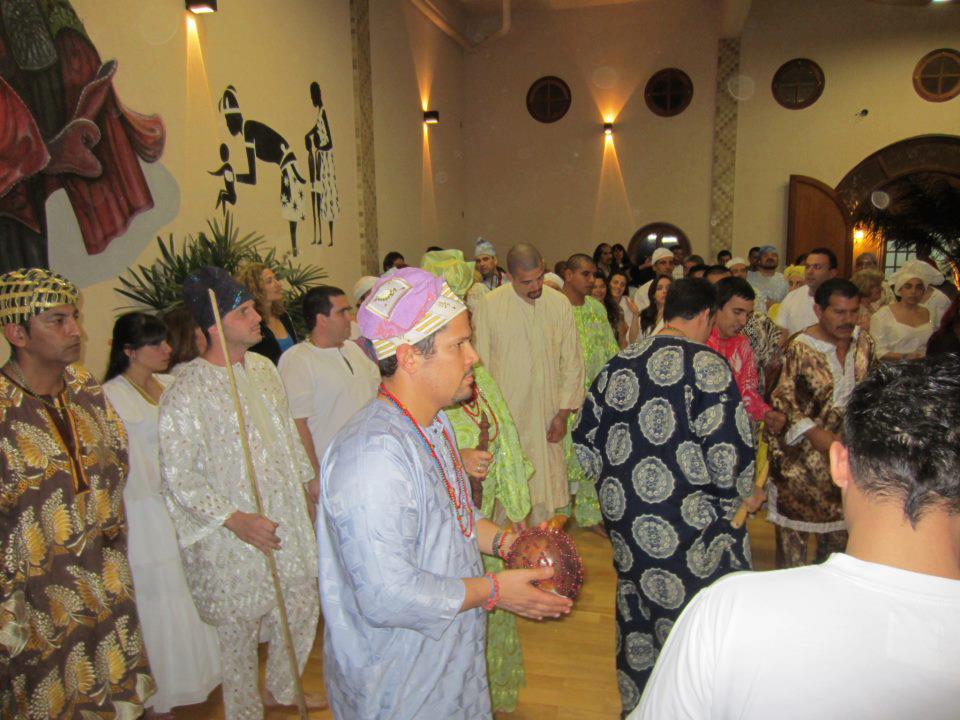
The Yoruba people in Trinidad and Tobago represent a significant cultural influence due to the legacy of African descendants brought to the Caribbean during the transatlantic slave trade. While the majority of Yoruba descendants arrived as enslaved people, others came as indentured laborers or free immigrants in later periods. Here’s an overview of the Yoruba people’s presence and influence in Trinidad and Tobago:
Historical Background:
- Origins:
The Yoruba people are an ethnic group from present-day southwestern Nigeria and parts of Benin and Togo. During the transatlantic slave trade, many Yoruba people were forcibly taken to the Americas, including the Caribbean. - Arrival in Trinidad and Tobago:
- Yoruba descendants primarily arrived during the late 18th and 19th centuries.
- Many Yoruba-speaking individuals were captured during wars in West Africa and sold into slavery.
- After the abolition of slavery, freed Yoruba individuals from Sierra Leone (who had been liberated from slave ships) migrated to Trinidad as free settlers.
Cultural Contributions:
The Yoruba have significantly shaped the cultural, religious, and social landscape of Trinidad and Tobago.
- Religion:
- The Orisha tradition (formerly known as Shango) in Trinidad is directly rooted in Yoruba spirituality.
- The Orisha faith involves honoring deities (known as Orishas) from the Yoruba pantheon, such as Shango (god of thunder), Oshun (goddess of love and fertility), and Ogun (god of war and iron).
- Rituals include drumming, dancing, and the use of Yoruba prayers and chants.
- Some aspects of Yoruba religion have syncretized with Christianity, particularly Roman Catholicism, due to colonial influences.
- Festivals and Rituals:
- Yoruba-influenced religious festivals are celebrated, particularly in rural and urban communities with strong African heritage.
- The Shango Baptist faith (a blend of Yoruba traditions and Christianity) is another unique development in Trinidad.
- The Spiritual Baptist/Shouter Baptist Liberation Day (March 30) is an official public holiday in Trinidad and Tobago, recognizing the Afro-Caribbean faith.
- Music and Dance:
- Yoruba drumming traditions (e.g., bata and talking drums) have influenced Trinidadian music.
- The rhythmic patterns of Yoruba music can be traced in calypso, steelpan, and other traditional Caribbean musical forms.
- Dance and movements in rituals reflect Yoruba cultural expressions.
- Language:
- Yoruba phrases, chants, and proverbs are preserved in religious settings and ceremonies. While the Yoruba language is not widely spoken, its influence survives in spiritual practices.
- Cultural Preservation:
- Efforts have been made by descendants to reconnect with Yoruba heritage. This includes re-establishing ties with Nigeria and incorporating Yoruba traditions into modern Trinidadian life.
Contemporary Yoruba Influence:
- Education and Awareness:
- There is a growing interest among Afro-Caribbean people in rediscovering their Yoruba roots through cultural festivals, academic research, and trips to West Africa.
- Festivals:
- Yoruba-inspired cultural events are celebrated, such as Emancipation Day (August 1), which honors African heritage and the abolition of slavery.
- The annual Orisha feast days are important religious observances where devotees honor specific deities.
- Diasporic Connections:
- Yoruba descendants in Trinidad and Tobago often share connections with other Afro-Caribbean communities in Cuba, Brazil, and Haiti, where Yoruba traditions like Santería and Candomblé also thrive.
Challenges and Resilience:
- Over the years, Yoruba traditions faced suppression during colonial rule and slavery. Practices such as Orisha worship were stigmatized or prohibited.
- Despite these challenges, Yoruba heritage has endured through oral traditions, music, and a sense of pride among Afro-Trinidadians.
Conclusion:
The Yoruba people’s influence in Trinidad and Tobago is profound and continues to shape the nation’s identity, particularly through religion, music, and cultural celebrations. The Orisha faith and Spiritual Baptist traditions are lasting legacies of Yoruba spirituality and resilience in the face of colonialism and cultural displacement.


